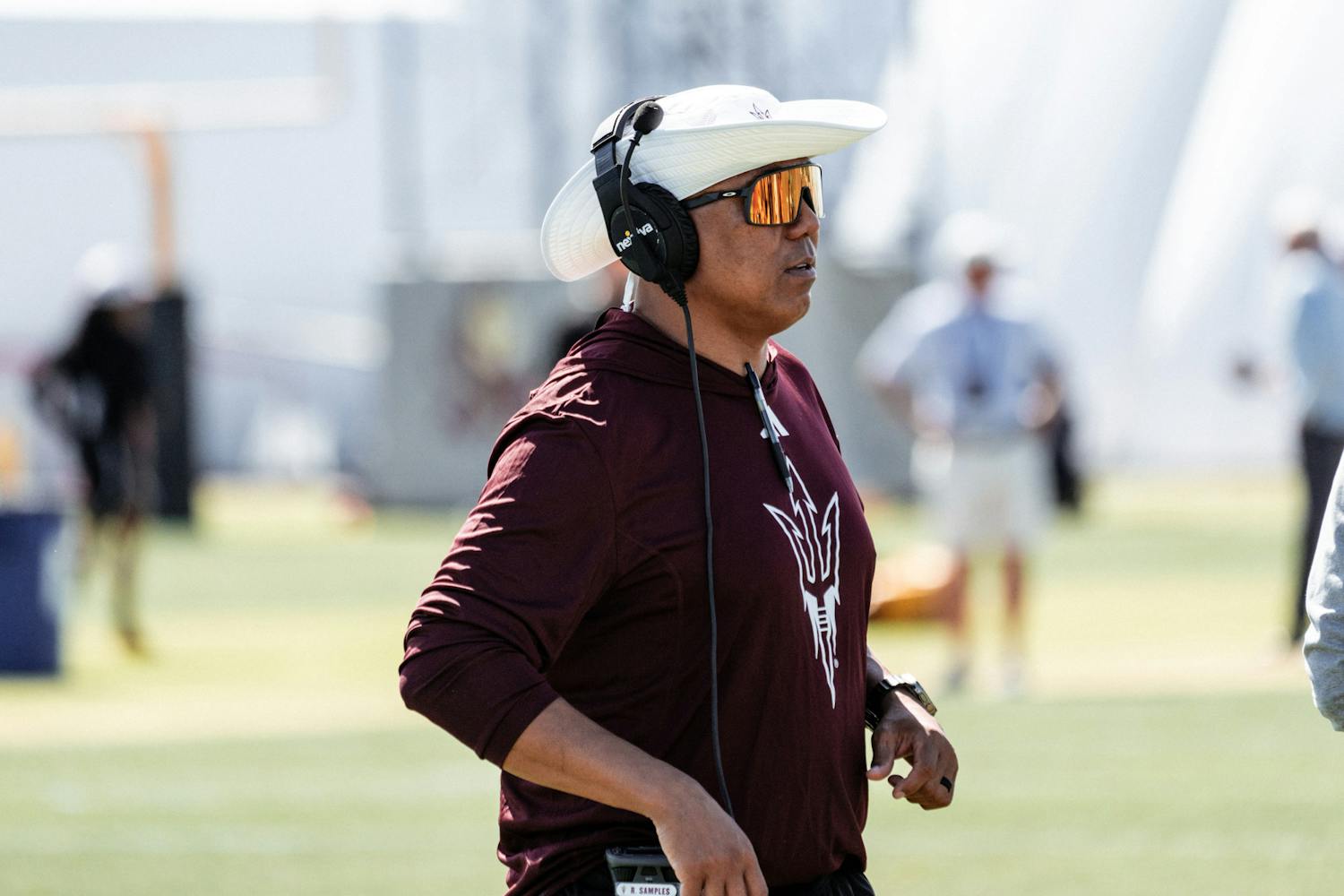Research assistants Ruben Favaro and Patrick Sims have a partnership that transcends the laboratory. Whether it be sharing a beer or working in the lab, they spend more than 40 hours a week with each other.
When asked if they ever got sick of each other, their response was, “all the time.”
Sims said they fight so much, everyone else in the lab thinks they are an old married couple.
“Sometimes I think we disagree just to disagree,” he said. “And when we aren’t disagreeing, we are definitely disagreeing with someone else in unison.”
Despite the bickering, Favaro said disagreeing with each other works nicely for them.
“We call out each other’s stupid bulls--t all the time,” he said. “So when we are trying to come up with an experiment, we are always trying to find things that are wrong with each other’s idea with whatever we are trying to do and in the end it actually helps us out."
Favaro and Sims met each other while working as lab assistants in chemistry professorJohn Kouvetakis’ lab. They have been working together for a little bit more than a year.
The lab is located in theGoldwater Center for Science and Engineeringon the Tempe campus. The research group focuses research on inorganic chemistry, applied physics and materials science of semiconductor and refractory materials.
Favaro said they develop semiconductor and refractory materials through precursor materials. They focus on silicon-based items.
“We are working with materials that have never been made before,” he said. “We study microstructure by exploring chemistry and physics to make them fit the profiles we want.”
The research group uses chemicals that have only been created in their lab.
“We design the chemicals, and we design the structures that we want,” Favaro said. “We see what nature has to offer us.”
Sims said Ruben is working with him on the same project.
“Now I’ve switched my focus, and Ruben is taking over what I used to do,” he said.
Sims and Favaro share many of the same interests and spend a lot of time in and out of the lab.
“We spend too much together,” Favaro said. “Our interests match up outside as well as inside. We are the same, we really like to work a lot, we like the same music, we really like to drink a lot and we both like to bike.”
Every couple of days they get dinner and talk about what projects to do next. Favaro said they wouldn’t do some of the things they do if they didn’t talk science outside the lab all the time.
“We will be just sitting there, eating or drinking and we’ll start bouncing ideas off each other,” Favaro said. “Like, what can we possibly do while we’re here? What’s the next step?”
Favaro said in an environment with inflated egos, they keep each other in check.
“There are some people with egos that transcend the observable universe,” he said.
Favaro and Sims are competing in an industry that pushes them to constantly produce results.
“So we have to be on our A-game,” he said. “We have to make sure we are ahead of the curve.”
Sims said the environment they work in isn’t always friendly or inviting with constant pressure.
“Having Ruben to go to and knowing that there is somebody there to kick my ass in gear makes thing a lot better,” he said. “It’s one of the motivations of going to work every day. We definitely keep each other in check compared to the other people in the lab. But our egos are still pretty big.”
Andrew White, who is a colleague of Sims and Favaro, said he met them when he joined Kouvetakis’ lab group this year as a first year graduate student.
“I share an office with Ruben,” he said. “Our research group is a joint group between physicists and the chemistry department.”
White works closely with Favaro and Sims and runs the equipment to conduct experiments.
White said there is a lot of pettiness involved in academia.
“Anything that is perceived as a threat to (academics') intelligence is resisted with level of fervor," he said.
When competing in a high-pressure industry and an environment that may not always be friendly and inviting, good partnerships, let alone lifelong friendships, can be hard to find.
White said the interaction between Favaro and Sims is very macho and very normal between two men.
“Women compliment each other when they hate each other while men constantly insult each other when they love each other,” he said. “The fact there is this hostile thing doesn’t really affect the way they insult each other or give each other crap. When Patrick and Ruben are calling each other dumbasses, that comes out of love."
Sims said he thinks he and Favaro work together so well because they don’t need someone micromanaging them or constantly telling them what to do.
“Between the two of us, we can come up with some pretty great ideas,” he said. “Even though we aren’t full-fledged scientists, we can still come up with something new, groundbreaking and revolutionary.”
Both Sims and Favaro said they feel they are pretty self-motivated.
“Most people are afraid, and they think about the work they’ve been assigned and nothing else, because they are afraid of what their boss is going to say or think,” Sims said.
They maintain the mindset to just go out and do it.
“We can do it. We have the balls to do it,” Favaro said. “I mean, we might blow something up, but we have the mindset to just go out and do it. You can talk theory all you want, but if you can’t produce results, it doesn’t mean anything."
Reach the reporter atkgrega@asu.edu or follow her on Twitter @kelciegrega




